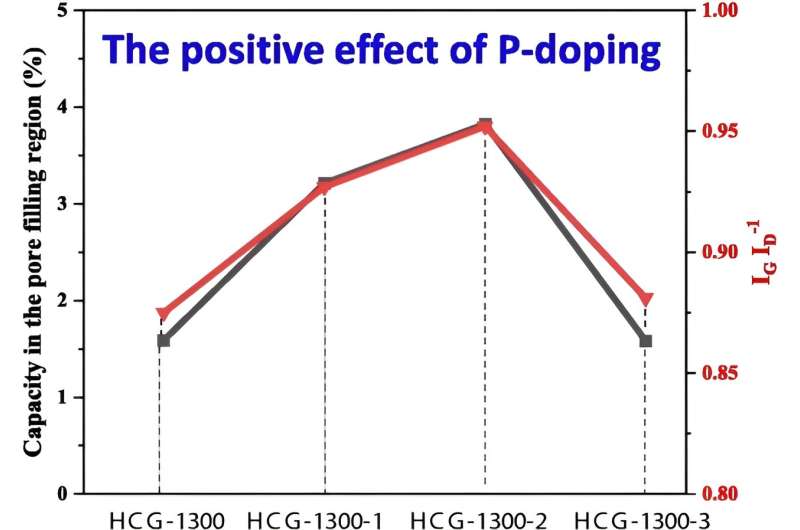This article has been reviewed according to Science X's editorial process and policies. Editors have highlighted the following attributes while ensuring the content's credibility:
fact-checked
proofread
Revolutionizing batteries: Coffee grounds power high-performance sodium-ion anodes

In a study published in the journal Carbon Resources Conversion, a team of researchers from Kazakhstan and South Korea reported the successful synthesis of P-doped hard carbon using coffee grounds as a precursor and H3PO4 as the doping agent.
The investigation focused on determining the optimal doping level for maximizing the incorporation of phosphorus ions into the carbon framework, aiming to enhance the electrochemical performance of the material as an anode for sodium-ion batteries (SIBs).
One notable aspect of the study is the use of coffee waste as a precursor material for hard carbon synthesis. The choice of coffee grounds is not only environmentally conscious, given the large annual disposal of approximately 18 million metric tons, but also leverages the unique lignocellulosic structure of coffee waste.
This result addresses the challenges posed by the uneven distribution and scarcity of lithium resources, offering an alternative solution through the exploration of SIBs.
The researchers further varied the concentrations of H3PO4, and found that using 2M of the doping agent led to promising electrochemical performance for hard carbon as an anode material. The resulting P-doped hard carbon, carbonized at 1,300°C, exhibited a reversible capacity of 341 mAh g-1 at a current density of 20 mA g-1, with an initial Coulombic efficiency of 83%. These results underscore the potential of P-doped hard carbon in enhancing the energy storage capabilities of sodium-ion batteries.
Overall, the study offers valuable insights into the synthesis and optimization of P-doped hard carbon for sodium-ion batteries, emphasizing the importance of precursor materials, doping agents and carbonization conditions. The findings have implications for the development of more efficient and sustainable energy storage solutions, particularly in the context of sodium-ion batteries.
More information: Madina Kalibek et al, From food waste to high-capacity hard carbon for rechargeable sodium-ion batteries, Carbon Resources Conversion (2024). DOI: 10.1016/j.crcon.2024.100225


















